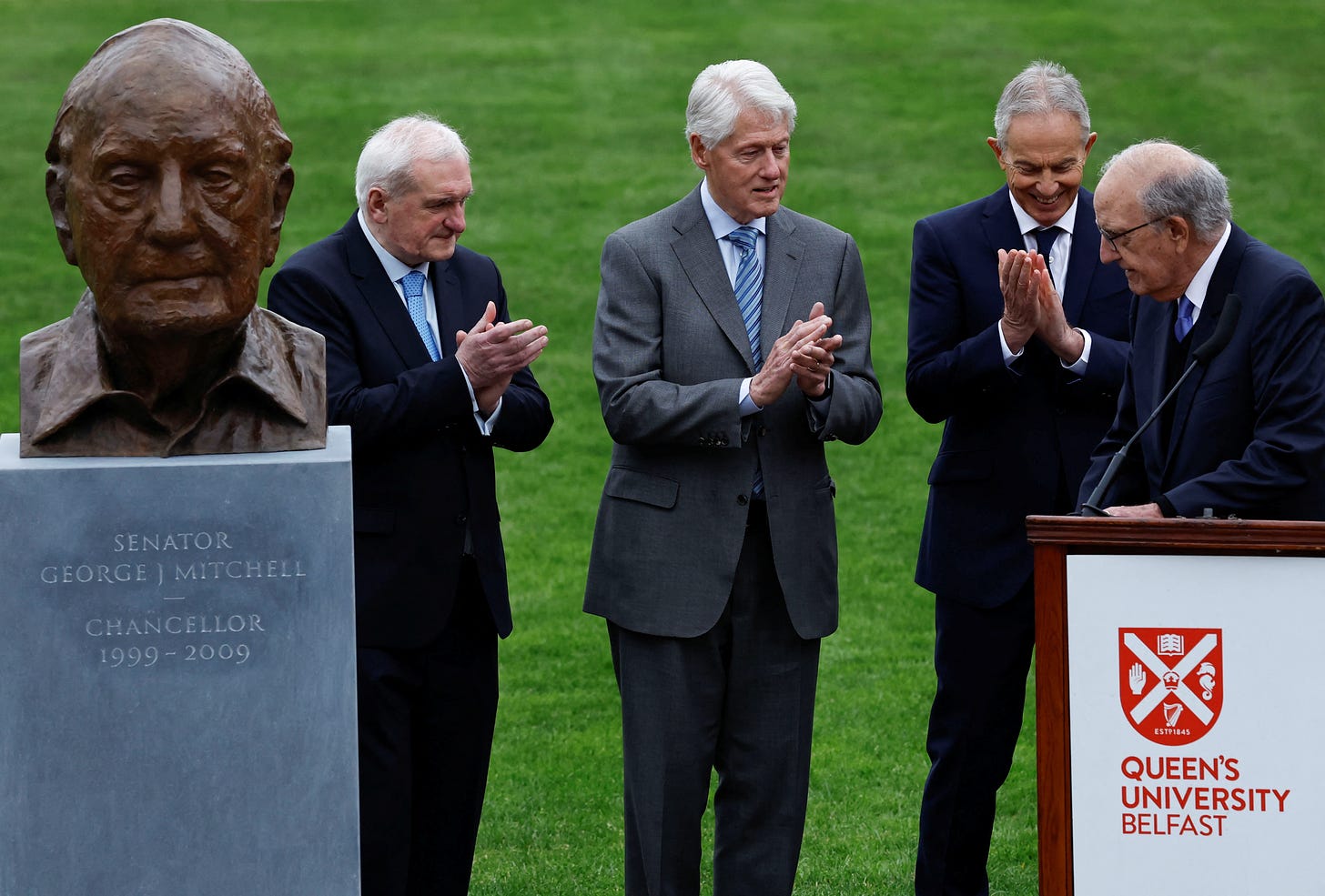The psychology of systemic consensus
by Alasdair Macleod, GoldMoney:

We are all too familiar with established views rejecting change. It has nothing to do with the facts. Officialdom’s mind is often firmly closed to all reason on the big issues. To appreciate why we must understand the crowd psychology behind the systemic consensus. It is the distant engine that drives the generator that provides the electricity that drives us into repetitive disasters despite prior evidence they are avoidable, and even fuels the madness of political correctness.
Forget the argument, look at the psychology
A human prejudice which is little examined is why establishments frequently stick to conviction while denying reasonable debate. Anyone who addresses the unreason of the establishment risks their motives being personally vilified and attacked. There are many fields of government where this is demonstrably true.
Leadership is too often based on prevailing beliefs, with minds firmly closed to any evidence they might be wrong. Even Galileo was forced by the Inquisition in 1633 to recant his scientific evidence that the earth revolved around the sun – a thoroughly reasonable and logical though novel proposition to the independent mind. But it wasn’t until 1992 that the religious establishment at the Vatican forgave him for being right.
That was 359 years later and long after it mattered to Galileo. Fortunately, when the establishment view departs from the facts it rarely survives as long. Socialism, economics, climate change and Brexit show the same static opinions insulated from inconvenient contradictions. This is not to say the establishment need be judgemental. Democratic government at its best tries to remain neutral and reflect a balance of opinion. But there are times when it loses sight of firm ground and becomes subverted by the psychology of its own established but unfounded beliefs.
The debate over Brexit is a classic illustration of psychology over reason, where few Remainers or Brexiteers have changed their views since the referendum in 2016. Influential Remainers are, by and large, those who have worked in government during the forty-five years of Britain’s increasing transfer of political power to Brussels. There are others who vehemently believe that being part of a larger economic unit is more secure than exposure to free markets. There are also those who believe Brexit will directly affect their lives and fear the uncertainty. Whatever their reasoning, their subconscious instinct is to seek protection in a guardian establishment rather than risk a commercially-based proposition.
The purpose of this article is not to debate Brexit, or any other government policy, but to explain the psychology of systemic consensus. Brexit is only an example of a wider phenomenon and serves as a topical example. This article expands the scope of the work of Pierre Desrochers and Joanna Szurmak, both of Toronto University, who examined the longstanding link between theories of overpopulation and climate change.[i] I argue that their thesis is also applicable to other instances of human debate, where psychological factors inhibit reason. Brexit will be our case study, being topical, but I shall refer to other examples as appropriate.
Brexit’s propositions
There are two main propositions upon which Brexiteers base their argument. The first is the loss of British sovereignty, by which they mean the right of the British electorate to determine its collective future. Traditionally, this has been the preserve of Britain’s parliamentary democracy, with an elected Parliament enacting all legislation which is then administered by the courts through criminal and civil law. These established democratic rights have been increasingly abrogated to an unelected executive in Brussels. True, there is a European Parliament to which the British electorate sends representatives, but it cannot initiate legislation, nor can it to all practical extent exercise control over the executive. The remote Brussels executive is also superior to national parliaments and imposes regulations which have to be adopted in national laws. The European Court of Justice is the supreme court, overruling national legal systems.
Being in the EU means the loss of democratic accountability for the British electorate. The Brexiteers say it is a simple matter of fact. Being out of the EU and reverting to full parliamentary accountability would be a return to long-standing democracy, which nearly everyone agrees is the best form of government.
The second major issue is arguably the lesser of the two, and that is whether Britain’s economic prospects are better in the European Union customs area, or independent from it. The empirical evidence is Britain did spectacularly well in the nineteenth century by removing all trade barriers and tariffs and having no trade agreements, owing its pre-WW1 global status almost entirely to unrestricted trade. The Brexiteers claim the economics supports the empirical, with EU trade in goods accounting for only 8% of Britain’s GDP, and declining relative to trade in goods with the rest of the world.
It is interesting to note that the Government’s economists and their supporters do not fully engage on the economic issue, with only the Brexit-supporting European Research Group (ERG) making the economic case seriously. This does not appear to be because of media focus. Rather, the economic establishment lost credibility at street-level by forecasting an economic slump in the event of Brexit. It was clear that the UK Treasury, the Bank of England, and the IMF set the inputs to their economic models in such a way that a Brexit outcome from the referendum would be dire. Instead, inward investment has increased, defying predictions that European and foreign corporations would sell up. The UK economy is now booming, despite the uncertainty over the Brexit negotiations.
In contrast with the ERG’s positive critique, the Remainers have continually resorted to scare tactics, such as claiming Calais will be shut to Dover’s shipping (denied by the Calais port authorities). They claim all flights from the UK to the EU and flights crossing EU territory will be threatened (ridiculous, being against international aviation law, and Britain’s Air Traffic Control controls transatlantic flights into Europe anyway). They claim that drugs for the NHS will be withheld (really?). And so on. All the establishment Remainers have done is resort to using fear as a substitute for debate.
Remainers have never adequately addressed the issue of democratic accountability either, presumably because they know they cannot win that debate. Instead they skirt round the issue. Logically, given the attestable facts on democracy and economics and having had two years to consider the democratic and economic issues, one would think increasing numbers of Remainers would accept their original position was untenable and revise their stance. Not so. They remain firm as ever, rather like the Vatican and its long-standing denial of Galileo’s discovery.
Six psychological factors
Denial of something that is increasingly obvious must be down to human psychology. In Chapter 6 of Desrochers & Szurmak’s work, they identify six identifiable factors which we will take in turn to enhance our understanding of the psychology of debate. I list them under the following headings (they differ slightly from the original):
- The iron triangle of crisis
- The psychology of entrenched arguments
- Motivated reasoning
- The core theoretical theme
- The anointed elite and
- Optimism and pessimism
The iron triangle of crisis
Brexit poses a threat to the institutions which owe their existence to the continuing membership of Britain in the EU. A good example are the UK’s quangos[ii] which liaise with some 53 EU quangos in Brussels. The UK’s quangos administer EU regulations in the UK under delegation. They are politically unaccountable and can wield considerable power. Brexit, with its promise of freer markets is a fundamental threat to their existence, firstly because it will sever long-standing operational relationships with Brussels, and secondly because the quango-crats are opposed to free markets by virtue of their employment. There is also the threat to their personal employment prospects.
It is these quango-crats that are the source of some eighty government papers on the impact of a no-deal, covering a range of industries from banking to nuclear research. Each paper has deliberately presented a worse-case for disruption and costs, with no mention of potential benefits. As the essayist HL Menken put it a hundred years ago,
“…the whole aim of practical politics is to keep the population alarmed (and hence clamorous to be led to safety) by an endless series of hobgoblins, most of them imaginary.”[iii]
These quangos and others employ highly qualified experts to come up with independent analyses of the consequences of Brexit. The public is meant to be impressed by their apparent neutrality. It is a fair bet that none of these independent experts concede that Brexit is positive; that’s not what they are tasked to do. The quango-crats are fighting for their own survival and are vehemently defensive.
And then there’s the media, which are always quick to report a potential crisis, but not balance its reporting by forensically questioning the statist position. The quango-crats behind it all are rarely, if ever taken to task, being civil servants answerable only to ministers. Question the minister, and he merely repeats his experts’ advice, which coming from the experts goes uncontested.
Questioning is reserved for the challengers, the Brexiteers who are in the position of upstarts, the party seeking to overturn the established order. The state broadcaster, the BBC, readily points out the headline-worthy negatives spoon-fed to it by government experts. But in its “balanced reporting” it is naturally sceptical of anything Brexiteers offer in response, and their positive message can never be as newsworthy or believable as that endless series of state hobgoblins.
This trinity, this iron triangle as Desrochers and Szurmak put it, is therefore comprised of existing establishment interests, the promotion of fear of change, and media management. It is a feedback loop of career and protectionism driven by the psychology of entrenched arguments, which is our next topic.
1. The psychology of entrenched arguments
A rational approach to absorbing and understanding new information would be to address it logically and without bias. Clearly, this does not happen. Our brains are still wired as they were in our hunter-gatherer days, when our decisions were based on a choice of fight or flight. We therefore have a natural tendency to hold onto a protected position after it becomes untenable.
Imagine being part of a community of primitive cave-dwellers and fight or flight becomes a group decision. We will support each other in uncertainty well after a crisis point has passed, breaking ranks after flight has become the only option. It is survival by inward-looking mutual defence, not attack. It is the deep psychology behind groupthink, or the psychology of entrenched arguments. It leads to the cliff-edge of crisis.
Loading...



